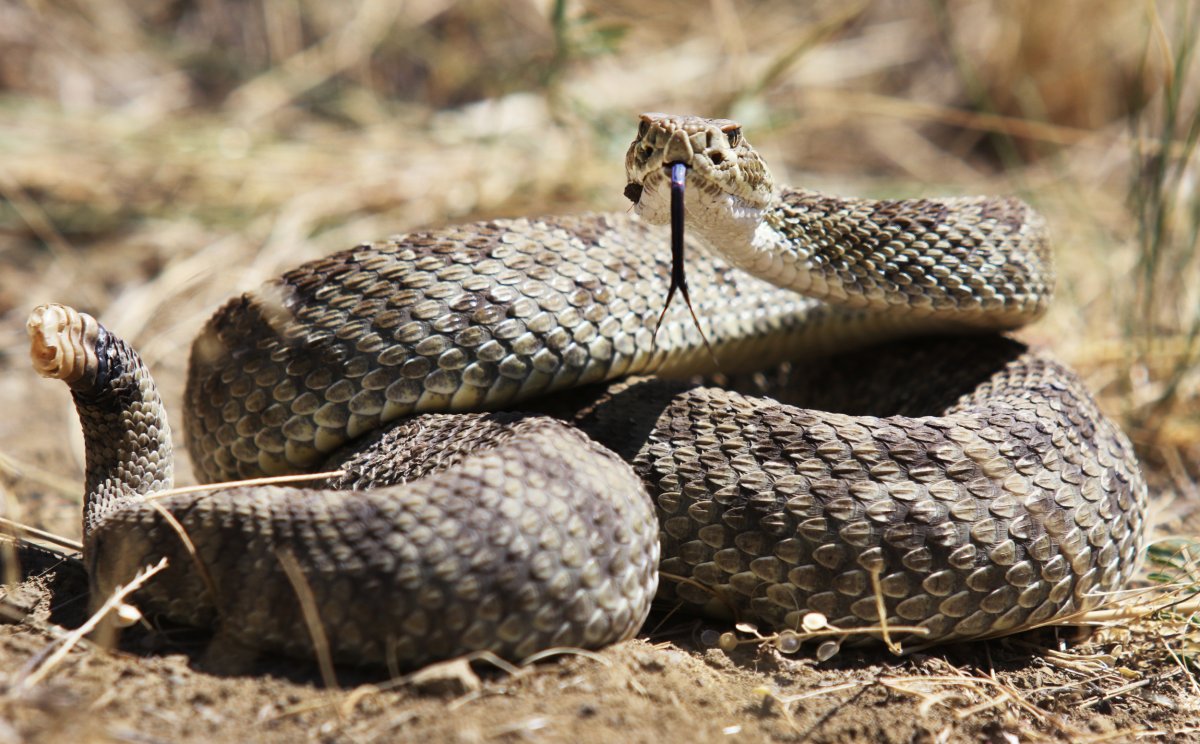Watching this video will make you less scared of rattlesnakes, according to a new study.
A group of multi-institutional researchers set out to learn more about how United States residents perceive rattlesnakes and found that a certain video could drastically improve their perception. Their findings are published in PLoS ONE.
These reptiles, which are widespread across the U.S., often cause "feelings of fear, disgust, or hatred," the study reported. This can lead to unhealthy behavior towards the animals, such as unnecessary killing. However, they are "key member of healthy ecosystems," meaning it is important that residents understand the snake's value.
"Snakes are among the most misunderstood animals on our planet and certainly have an image problem," study co-author Zachary J. Loughman, a professor of biology at West Liberty University and chair of the Department of Organismal Biology, Ecology & Zoo Science at West Liberty University, told Newsweek.
"Many people working with snakes know they are worthy of respect and conservation. Our goal was to help conservationists figure out what message strategy worked best to combat people's perceptions of these misunderstood animals so that more people see what we see when we encounter a snake."

During the study, the researchers asked social media users to fill out an online survey that asked them to describe their feelings about rattlesnakes. They then analyzed the change in these feelings after they viewed a video.
There was one "Instrumental Video," which focused on rattlesnakes' positive impact on the ecosystem, and another "Relational Video," which focused on how rattlesnakes cared for their young.
The videos informed the viewer about the snakes as well as using words such as "friends" and "family" to encourage the viewer to feel empathy towards the reptiles.
"The objective of the relational message strategy was to improve perceptions of rattlesnakes by motivating emotional connections," the study reported.
The researchers found that both of these videos greatly altered the perception of rattlesnakes among U.S. citizens. However, the instrumental video had a greater impact.
The relational message was more effective on only women, while the instrumental video was linked to improved perceptions with every group, although it did vary depending on religious groups.
Overall, this suggests that message strategies can improve people's perceptions of "unpopular and potentially dangerous wildlife." However, they also note that there are different results depending on gender, age, religious beliefs and experience.
The results of the study can used to improve communication with the public about these reptiles.
"When people understand that snakes are animals and not evil killing machines, they are more willing to live alongside them. With rattlesnakes in particular, people are likely to be less scared when they know they are good mothers that protect their pups from danger, just like we do." Loughman said.
"When people understand that snakes help us by controlling rodent populations, which helps keep us from getting sick, they are also more likely to tolerate them. The authors wanted to figure out how to get that message to the masses. Through this research, we now know which message works with different groups of people to provide a basic understanding of these animals."
Do you have a tip on a science story that Newsweek should be covering? Do you have a question about snakes? Let us know via science@newsweek.com.
Uncommon Knowledge
Newsweek is committed to challenging conventional wisdom and finding connections in the search for common ground.
Newsweek is committed to challenging conventional wisdom and finding connections in the search for common ground.
About the writer
Robyn White is a Newsweek Nature Reporter based in London, UK. Her focus is reporting on wildlife, science and the ... Read more
To read how Newsweek uses AI as a newsroom tool, Click here.








